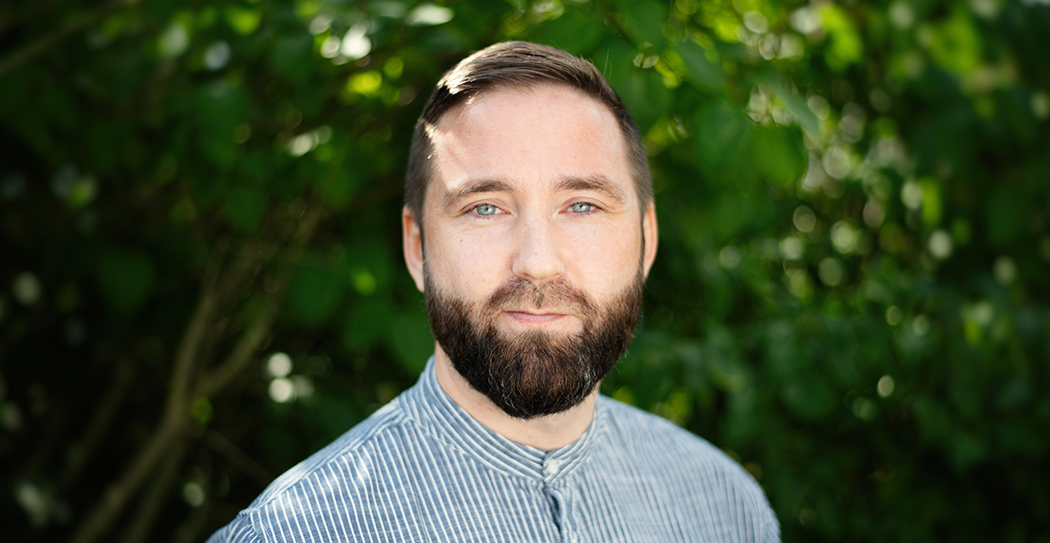Particle physicist elected to the board of Young Academy of Sweden

Christian Ohm, docent in particle physics, has been elected to the board of the Young Academy of Sweden (SUA). The academy's board consists of five members chosen for one-year terms. SUA is dedicated to promote the opportunities for young academics by providing input, publishing opinion pieces, issuing reports, and organizing interdisciplinary meetings across institutional and disciplinary boundaries.
Christian Ohm has been an active member of SUA since 2019, participating in numerous projects and working groups. He now assumes the role of a board member with great enthusiasm.
"I have just embarked on my final year as a member. Over the past four years, I have chaired a working group, served on the selection panel, and contributed to the nomination committee. Additionally, I've been involved in various larger and smaller projects, such as producing a report on assistant professorships and co-authoring 'Forskardrömmar,' a children's book about research. It's going to be an incredibly exciting challenge to be part of leading the academy's work and it feels fantastic.”
Ambitious goals as a member of SUA's board
Last year, SUA outlined its vision for a thriving academic system in Sweden by 2030, serving as the foundation for the organization's direction in the years to come.
"This year, our focus will revolve around the role of researchers in society. We will submit our input to the government's research proposal for the upcoming year, refine our outreach activities, and prepare several opinion pieces. Within the board, I will focus additionally on our outreach efforts, and I also plan to invite the entire academy to join me at CERN, where my research is conducted."
Valuable and inspiring community for young researchers
One of SUA's key strengths lies in its interdisciplinary nature, welcoming applications from researchers across all fields. Members are selected based on their research accomplishments, but their commitment, drive, and willingness to improve the conditions for conducting high-quality research, education, and collaboration are equally important. This creates a constructive and inspiring "SUA spirit" that characterizes their work.
"I truly appreciate being a part of SUA, and a major reason for this is the academy's constructive drive. It has been incredibly valuable and inspiring to collaborate with motivated colleagues from diverse fields, tackling complex challenges together. This naturally encourages us to broaden our perspectives and recognize the importance of diverse viewpoints in improving academic career paths, shaping effective leadership at our institutions, and elevating the role of science in society."
"Another significant advantage of SUA is our competent secretariat, assisting members in realizing their ideas, ranging from project management and the compilation of research policy reports to valuable networking and the organization of highly rewarding academy meetings. And, we certainly have a lot of fun!"
Exploring unknown particles and the dark matter
Christian conducts research in experimental particle physics, an area focused on understanding the smallest building blocks of nature. Gaining insights into the interactions between these building blocks contributes to our understanding of the universe's evolution into its present state.
"My primary focus is on developing new methods for detecting particles beyond our current theoretical framework, the standard model of particle physics. Ideally, these methods will help us uncovering the nature of dark matter, the enigmatic substance dominating the universe."
He has mainly conducted his research within the ATLAS experiment at CERN, located near Geneva, Switzerland. CERN is a hub for particle physicists worldwide, where they conduct large-scale experiments and analyze extensive datasets, leading to landmark discoveries such as the Higgs particle.
The new technology developed in particle physics research has also resulted in novel instruments for medical diagnosis and cancer treatment.
"At present, our group at KTH is contributing to the development of an entirely new type of detector capable of measuring the precise time at which charged particles pass through, with an accuracy within tens of picoseconds. This detector will be installed in the ATLAS experiment in the coming years, enabling more precise measurements of proton-proton collisions at CERN's Large Hadron Collider throughout the 2030s. During this time, we anticipate collecting twenty times more data than previously analyzed, with the hope of contributing to solving the mystery of dark matter."
Text: Marta Marko-Tisch
